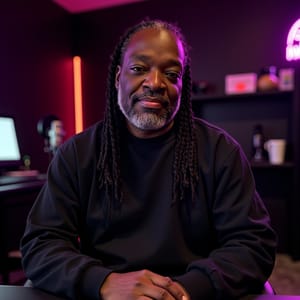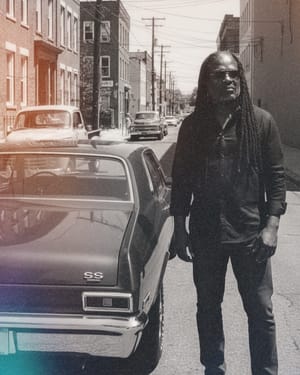From the Front Porch
I remember the phone call that changed everything about how I think about saying no.
My biggest client at the time - let's call him Marcus - needed me to fly out for an "emergency" strategy session. Third one that month. It was always an emergency with Marcus.
"Can you be here Thursday? I know it's short notice, but we really need you."
Six years ago, I would have said yes immediately. Rearranged my life. Canceled dinner with my family. Because that's what "good" consultants do, right?
But I'd just done the identity work from yesterday's newsletter. I'd started asking myself: Who am I when nobody needs me?
And I realized something: I didn't want to be the guy who dropped everything for other people's emergencies anymore.
"I can't make Thursday work, Marcus. But I can do a call Friday morning."
Silence. Then: "Wow. I thought I could count on you."
You know that feeling when someone says that? Like you've just betrayed everything you stand for?
That's when I learned the hardest lesson about boundaries: The people who benefit most from your lack of them will fight the hardest when you try to set them.
A Hard Truth
Saying no feels like betrayal because we've been taught that love means availability.
Good partners are always there. Good employees never push back. Good friends drop everything to help.
But here's what nobody tells you: Saying yes when you want to say no isn't love. It's people-pleasing. And people-pleasing is just manipulation disguised as kindness.
You say yes to avoid their disappointment. They get what they want without having to respect your boundaries. Everyone stays comfortable, but nobody grows.
Real love sometimes disappoints people. It says, "I care about you enough to be honest about my limits." It teaches people how to treat you by showing them what you will and won't accept.
The courage to disappoint isn't cruelty. It's the foundation of authentic relationships.
Today's Shift
The Disappointment Framework:
Step 1: The Boundary Audit
Look at your last week. How many times did you say yes when you wanted to say no?
Each yes you didn't want to give is a boundary you don't have. Start there.
Step 2: The Love Test
Before you automatically say yes, ask: "Am I saying yes because I want to help, or because I'm afraid of their reaction?"
If it's fear, that's not love. That's people-pleasing.
Step 3: The Disappointment Practice
Start small. Say no to one request this week that you would normally say yes to.
Watch what happens. Most of the time, people adjust faster than you think. The ones who don't? That tells you everything you need to know about the relationship.
What's Next
Tomorrow: The Art of Selective Caring - Not everything deserves your energy, and learning to choose what gets your attention is the difference between being overwhelmed and being intentional.
Bottom Line
Marcus and I had a real conversation two weeks after that phone call. He admitted he'd been taking advantage of my availability because he knew I'd always say yes.
Our working relationship got better, not worse, because I finally had boundaries.
The people who truly care about you want you to have limits. The ones who don't... well, that's information too.
— Damien



